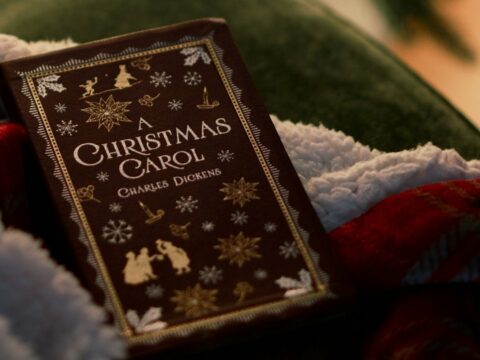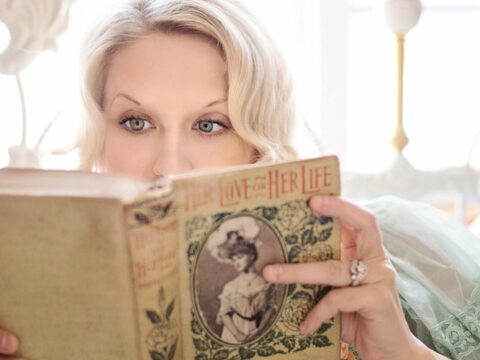You know, it’s ironic that I would write about comedy this month. Because the last two months of my life have been a dumpster fire. Fires everywhere as I frantically try to put them out and stay sane. The stress has been high. The sleep has been non-exist. My sweet little baby has turned into a screaming, teething gremlin, and my husband is losing his mind at work. On top of all that, my family has been playing a 6-week-long tournament of “Who’s Sick Today?” as we’ve been passing around three, possibly four illnesses. It’s the worst game ever FYI.
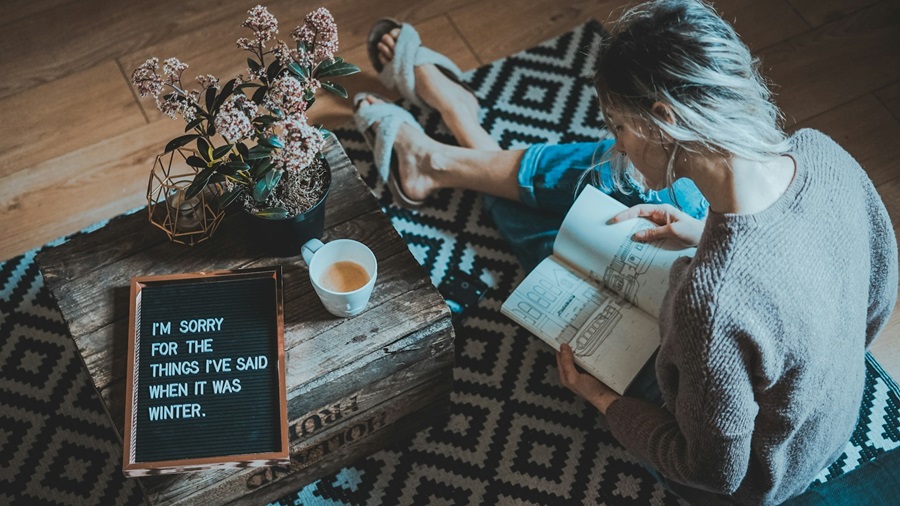
The grand finale of this Olympics of Sickness was me throwing up all night right before Thanksgiving and spending my favorite holiday in bed. Hey, at least I got a day off, which is more than most moms can say on holidays. And it’s times like these that I think about the fine art of writing comedy.
You Know What They Say: You Can Laugh About It or You Can Cry About It
Personally, I prefer laughing about stuff since tears make my eyes swell. It’s when life is at its crumbiest that human beings yearn for lightheartedness the most. Smiling and laughing is actually incredible for your overall health, plus the experience of laughing with someone is very bonding in real life and between characters in a book. Humor can make any scene in a story go from plain and unmemorable to one of the best moments in the plot.
So you might be asking, how do you write comedy? Some writers are naturally gifted at being funny, but some of us break out into sweats at the idea of telling jokes off the top of our heads. On command no less. Just to take the pressure down, let me emphasize that not all books have to be funny. Some books have no humor in them at all and still manage to be deeply moving and gorgeously written. I personally like to add humor even to serious books because that’s just my style. But humor is also subjective. Different styles of humor don’t hit the same in different cultures or for different people. And that’s okay!

However, learning how to write comedy into your stories, no matter what genre you write, can be a rewarding muscle to exercise if you want to write professionally. For the record, I don’t have a step-by-step process on how to write humor. But I do have some thoughts on the subject that I’ve picked up over the years.
The Best Comedy Subverts Expectations
I read recently that writing comedy and writing horror are shockingly similar. You set an expectation, build anticipation, and then surprise your reader by defying that expectation. This process works just as well for jump scares as it does for punchlines, except that you laugh instead of scream at the end. Maybe this is why bad horror and botched suspense can turn unintentionally funny so easily. But stoking anticipation and then delivering the opposite of expectations is what truly brilliant satire is made of.
When I talk about subverting expectations, this can apply to a million situations in a book. Maybe a big fierce Viking who’s the terror of the countryside secretly has an intense case of ichthyophobia: the irrational fear of fish. Such a phobia would create comedy gold while he’s stuck at sea for days. How about a bit in your story where a pair of in-laws say awful things in French around their English-speaking son-in-law—only to discover that he understood French the entire time and has been plotting their downfall for years. Or how about a scene where a character has to break the terrible news that her best friend’s husband is cheating on her? But instead of bursting into tears, the friend jumps to her feet in triumph: “FINALLY! I’ve wanted to leave him for years, but I felt too guilty!”
Bottom line: if you defy expectations then you have a high likelihood of tapping into something humorous.
When It Comes to Writing Comedy, Timing Is Everything
Timing truly can make or break a joke. Sometimes it’s letting a misunderstanding draw out just a little longer than planned. Or a particularly dignified moment ending in zany antics and slapstick acrobatics. Or a character getting put in a situation that is custom designed to make them uncomfortable to the max. All of these are examples of how timing is the special ingredient to humor. Now granted, humor is extremely context specific. Sometimes the dramatic irony of the audience knowing something the character doesn’t is the thing that makes the humor work.
How about a humorous moment that falls flat in a story and then becomes funny when a character commits to the joke for a little too long? Or—even worse—attempts to explain the joke they were going for? Characters putting their cluelessness on full display is one of my favorite sources of humor in stories, but it has to be handled delicately. After all, nothing kills comedy faster than explaining a joke. But there are certainly cases when the awkwardness of the explanation is the entire point of the scene. When it’s done well, it’s perfect.
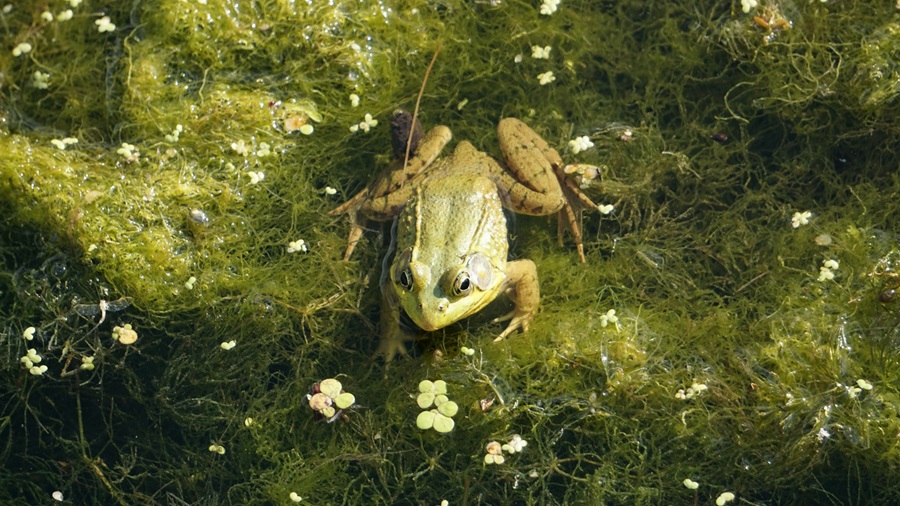
Find Humor in the Relatable
Sometimes people have no idea where to start when it comes to writing comedy. How do you figure out what’s even funny? Where do you begin? If you’re asking these questions, I’d strongly advise you to seek out stuff that’s relatable to you. What topics do you personally find funny? For me, dating humor and bad date stories are always hilarious, so I draw on this topic often when I write. Going on bad dates you desperately want to escape and getting creepy vibes from strange men who seem to be hitting on you is a topic just about every woman can relate to. And it’s a treasure trove of humorous situations.
What topics do you find naturally funny? The universal pain of waiting in line at the DMV? The natural hilariousness of that one friend who constantly overshares? How about all the crazy things that kids say in public? Or your grandma with dementia? Maybe that last one is a little dark for you, but we all have slightly addled relatives who are great sources of comedy. Don’t we all find topics like toilets, surviving junior high, and silly words like kerfuffle to be universally funny? When searching for good material for writing comedy, I’d highly encourage you to seek out the relatable. As long as it makes YOU laugh, you’ve at least got a baseline to start from. Because if you’re not laughing at your own jokes then what’s even the point?
Not Sure If Something Is Funny? Test Your Material
This advice comes straight from famous comedians: sometimes you won’t really know if something is funny until you test it on a few audiences. I can’t tell you how often I let my husband read my funny blog captions and know that I’ve struck gold when he snorts to himself over in the corner. If you have beta readers or a writing group you trust, there is nothing wrong with throwing some storytelling spaghetti at the wall to see if they laugh.
A huge part of writing comedy (or anything for that matter) is writing A LOT and failing A LOT until you find your groove. It doesn’t take much effort to come up with a bunch of really bad jokes, and sometimes the reactions you get from attempting comedy will make their way into your writing too. Funny things are all around us if we take the time to notice them and write them down.
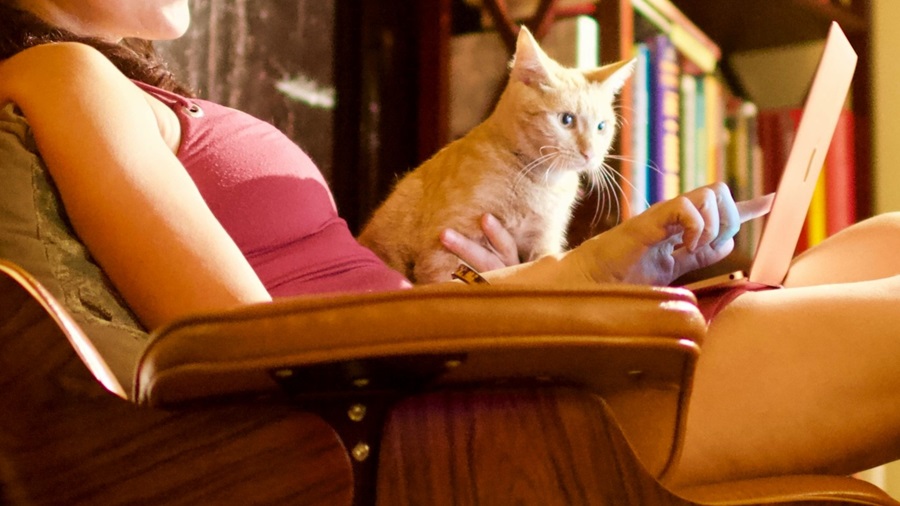
And Last But Not Least: Seek Out Comedy Inspiration
What source material really makes you laugh? Your favorite comedian? Bad Christmas rom coms? Your one friend from college who doesn’t even know how funny he is? Random commenters on the Internet are often my favorite source of comedy gold. And by watching and reading comedy across genres, you’ll give yourself more ideas and more material to work with.
Along with humorous entertainment, I’d highly encourage you to notice the comedic moments in your own life. My greatest source of joy and laughter right now is my one-year-old daughter who does innocently hilarious things daily while making priceless facial expressions. I’ve learned in the past two months that me hacking up phlegm so hard that I can’t breathe makes my baby laugh hysterically. Apparently she finds me pretty funny too. That or I’m raising a serial killer. Who can say? But you never know what comedy inspiration might be sitting right next you at any given moment. Don’t let anything funny pass you by without noticing. ❧


